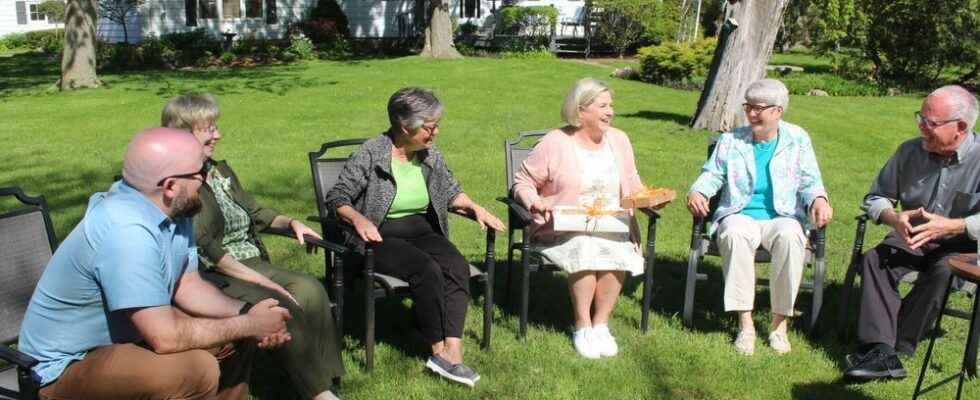Ontario’s New Democrats would introduce property tax deferrals for seniors if elected next month, Leader Andrea Horwath promised Friday.

Ontario’s New Democrats would introduce property tax deferrals for seniors if elected next month, Leader Andrea Horwath promised Friday.
She also pledged a $1-billion investment in home care as a second plank in her party’s plan to help Ontario seniors stay in their homes longer.
Speaking with a group of seniors during a backyard visit in Charing Cross, a Chatham-Kent hamlet about 110 kilometers west of London, Horwath said the deferral would “provide people a little bit of extra breathing room when it comes to the cost of their property tax.”
Residents aged 55 and older would be eligible for the program that would allow the province to pay their taxes in the interim, she said. The homeowner would then reimburse the province when they sell their home.
Horwath said the measure would save roughly $375 every month for a household that pays $4,500 annually in taxes.
“We want to see seniors be able to afford to stay in their homes longer so we have a plan to help with the property taxes so that seniors who are at a bit of a financial crossroads can take that weight off of their backs,” the NDP leader added.
Horwath said the cost of property taxes can be a significant “financial barrier” for some seniors wanting to stay in their homes.
Under the NDP’s plan, the province would finance the deferral so municipalities wouldn’t have their property tax bases reduced.
“There would be no growing interest or anything at all. It would be a matter of giving people that financial relief,” Horwath said.
If a resident died before repaying these deferred taxes, that would be dealt with during the estate process, Horwath said.
Horwath emphasized the NDP plan was neither a death tax nor a reverse mortgage.
The program would provide seniors with some extra money to pay for other expenses, which has become a concern with the rising cost of living and growing inflation.
The party said evidence from a similar program in British Columbia showed seniors will maintain “substantial equity” in their homes, ensuring they can pass that on to their children.
Vera Moore, who hosted Horwath during the campaign stop, said she did have worries about the growing cost of housing in the province.
“My concern is the price of what it would cost me to have an apartment or a townhouse,” said Moore, who has lived in her home for almost six decades.
“So it’s hard sometimes to move,” she said.
The NDP promise to spend $1 billion in home care includes investing $235 million this year. The eventual goal, Horwath said, is to expand the province’s non-profit system and phase out private-sector operators contracted to provide the service.
Horwath said the NDP will transition the system to “get the profits out and the care back in.”
However, a challenge that will still be faced is enticing people who have left the field to return to home care.
“We’ve seen thousands upon thousands of (personal support workers) and other health-care workers leave health care in the aftermath or during the process of COVID-19 because it was so stressful, so difficult,” Horwath said.
Under the NDP plan, Horwth promised wages for personal support workers would increase by $5 from the pre-pandemic level. She also committed to “stabilize the work so people can have full-time hours.
“They can have benefits,” she said. “They can make careers out of being PSWs again.”
Horwath added the NDP plan includes provisions for the recruitment and retention of more PSWs, “as well as returning some of the folks that might have walked away from being a PSW.”
– with Canadian Press files
